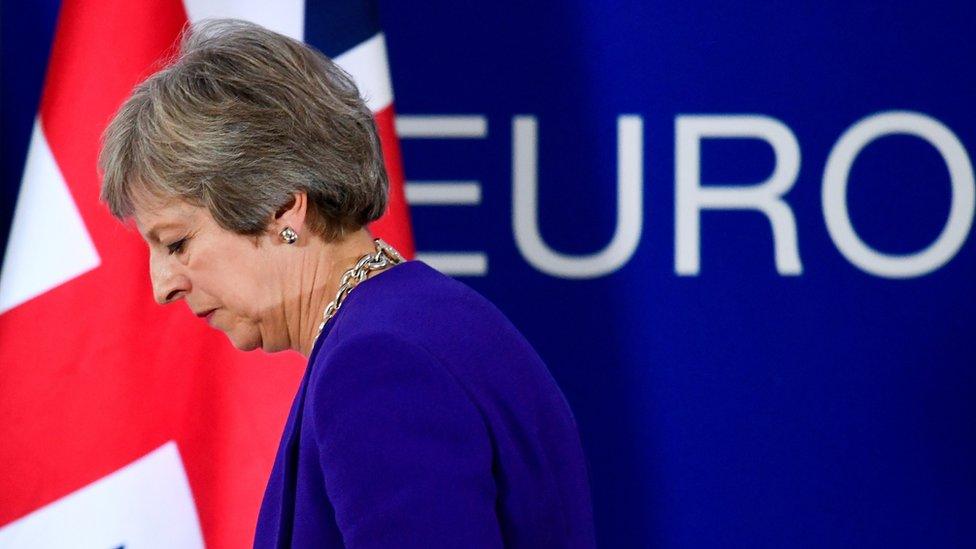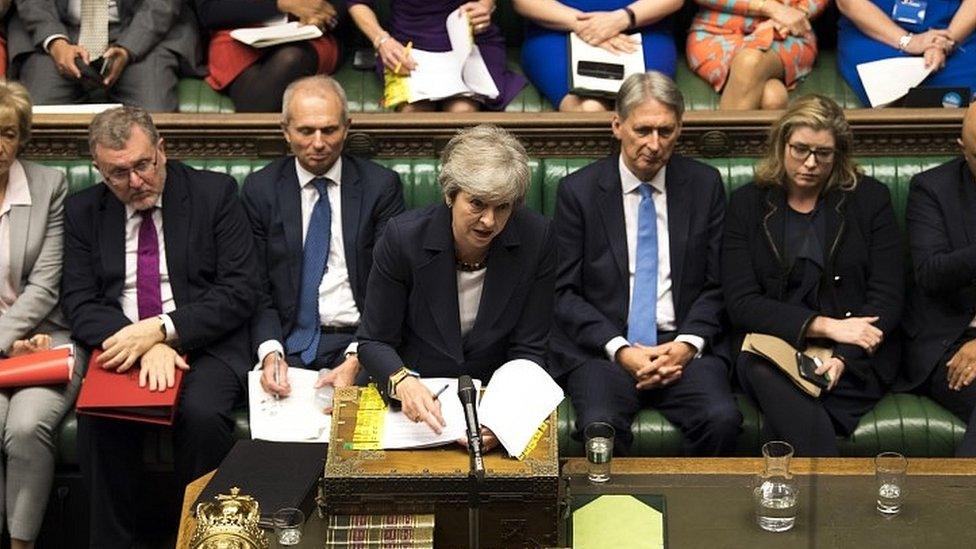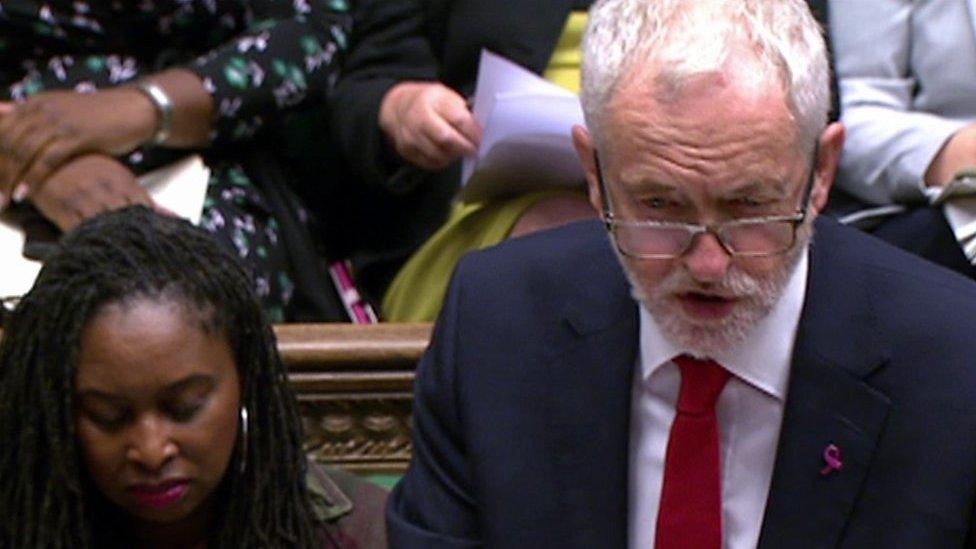Brexit: Tories must be as united as EU, says Hunt
- Published
- comments

Jeremy Hunt has urged Tory MPs to get behind Theresa May - amid a backlash against suggestions the Brexit transition period could be extended.
The foreign secretary said the "great strength" of other EU nations was that they had stayed united in the talks - and he urged Tories to do the same.
The PM had to "maximise her negotiating leverage in Brussels," he added.
Scottish Secretary David Mundell has raised concerns about a longer transition period with No 10.
He told the BBC: "What I want to be quite clear is that we are still leaving the Commons Fisheries Policy at the end of 2020. I think that's a very important thing for fishermen here in Scotland to know and understand."
But he added there was not a "specific proposal" about extending the transition period, it was just "something that has been floated" and said the "prime minister has my full backing in terms of getting a deal".
Former Conservative leader and prominent Brexiteer Iain Duncan Smith said it would see the UK paying the EU "tens of billions" more.
He told BBC's Newsnight he could not understand an extension when the UK "still hasn't got anything back in return", and said the negotiations "look more like a capitulation".
But Mr Hunt said it was precisely because Mrs May had not "capitulated" to EU demands that no agreement had been reached at the European Council summit this week.
And he told BBC Radio 4's Today programme: "The great strength of the EU in these negotiations is that the 27 EU nations have remained united. And we now need to do the same behind Theresa May to maximise her negotiating leverage in Brussels."
Mrs May briefed around 120 business leaders on Brexit negotiations in a conference call on Friday - Downing Street said while businesses were regularly briefed after European Council meetings, this was the first time Mrs May had conducted one personally.

PM: Extension would be 'a matter of months'
Kafka-esque?
By BBC political editor Laura Kuenssberg
As we move towards what the legal deadlines imply are the closing moments of this whole process, some of its moments are becoming pretty strange.
The prime minister had a hint of warmth from some parts of the EU empire for the idea of drawing out the implementation period, to give more time to work out the long term fixes.
But even so, the politics put such a straitjacket on proceedings that she can't even quite manage to be completely clear about that.
So we heard about a proposal that's not a proposal but an "idea that's emerged". An extension to an extension that's not a request for a longer transition period but a desire perhaps to have the option.
It might sound like Kafka. But it's the words of a government struggling to keep a set of almost impossible promises.

The UK is due to leave the EU on 29 March 2019, and the transition period, which Mrs May prefers to call the implementation period, is designed to smooth the path to a future permanent relationship between the UK and EU.
During this period, which is due to finish on 31 December 2020, the UK's relationship with the EU will stay largely the same. But with the two sides failing to reach agreement yet, Mrs May said this arrangement could be extended "for a few months", if needed.
The UK has signed up to the principle of agreeing an Irish border "backstop" - an insurance policy designed to prevent the need for customs checks - in case there is a gap between the transition period ending and the future permanent relationship coming into force.
The problem is that the two sides have yet to agree what form the backstop will take, and how long it could last.
Mr Hunt said the backstop remained the "key" outstanding issue to negotiating a withdrawal agreement for the UK.
The UK would not agree to allow "customs barriers down the Irish Sea" - the EU has suggested keeping Northern Ireland within EU customs rules for a period - or for the whole of the UK to remain in the customs union "indefinitely".
"Because she has held firm on that that has meant we haven't been able to solve the problem this week. But those are two very important matters of principle for the United Kingdom," he said.
While the issue about the Irish border could be resolved through a free trade deal between the UK and EU, the EU was insisting the UK's withdrawal agreement should be negotiated first, with a "backstop", before the "future relationship" discussion began, he added.
"If we are going to resolve this, we need to make more progress on the future relationship."
Asked if the UK would have to pay more into the EU budget, if the transition period were to be extended, he said: "All those are issues that would have to be discussed" adding that the issues of money and of the Common Fisheries Policy were "very difficult".
Eurosceptic backbencher Jacob Rees-Mogg said any proposal that meant an extra £15bn a year being paid into the EU budget in return for "a waffly political declaration" would be "very hard to get through the House of Commons".
He told the BBC: "We are going to be tied to the EU for longer if we go along with what the prime minister is saying, without having any votes.
"So we will pay the EU for the privilege of it making our laws and interpreting them through the European Court of Justice for an extended period - that is not a good deal."
EU Brexit negotiator Michel Barnier told France Inter radio on Friday that "90% of the accord on the table has been agreed with Britain" but added: "I'm convinced a deal is necessary, I'm still not sure we'll get one."
Asked if the whole agreement could fail on the issue of avoiding a hard border in Ireland, he replied: "My answer is yes."
In a separate development, Tory MP Johnny Mercer has hit out at the current state of the government, describing it as a "shit show".
In an interview with The House magazine, the former Army officer said he would not have stood as an MP "if the situation was like it is now" and that he was no longer sure that his "set of values and ethos" were still "aligned with the Conservative Party".
- Published17 October 2018

- Published17 October 2018

